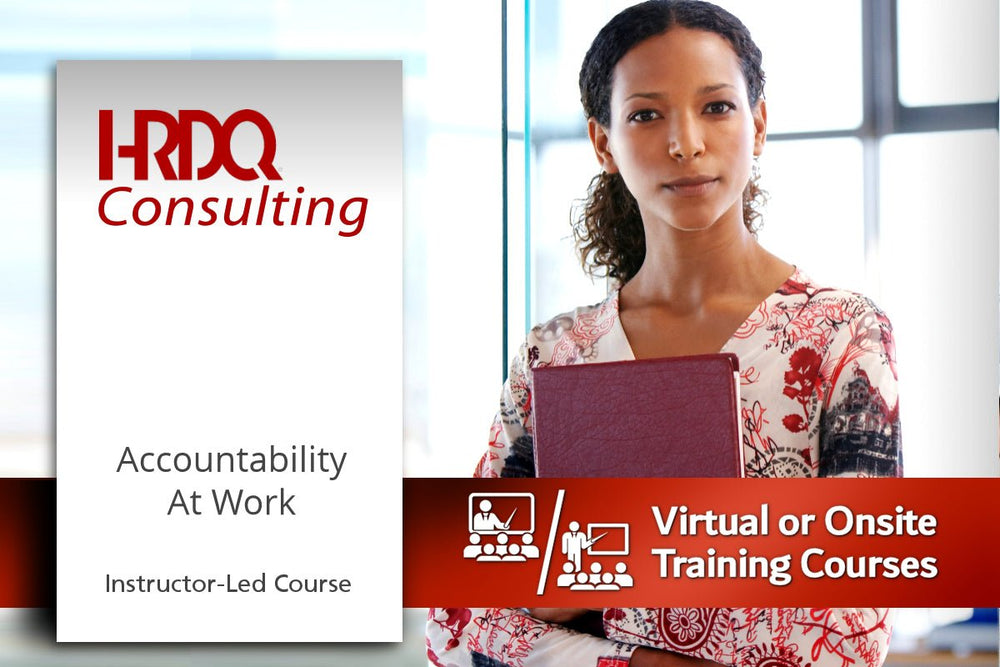Share
The Impact of Consulting on Effective Team-Building Strategies
Bradford R. GlaserEveryone wants their team to be successful. This is especially true when you're in charge of a startup or when you're handling sensitive clientele, for example, in a hospital or in a legal setting. Poor teamwork can be disastrous for just about any organization.
I've seen how it really can make a real difference to build a place where people actually work well together.
Consultants can bring new knowledge and fresh ideas to the table to help with your team building. Because they come from outside your company, they can have a fresh new way of looking at your company. The results can be staggering. When you're really mixed up in your own company, you might not see the problems that are right in front of you.
It is a very common phenomenon, and people are always surprised by it!
In most cases, you can use these new methods to improve your team. Consultants can find the roadblocks you're facing and get the creativity going. They put strategies into practice that really click with your group. The benefits that come from it will go far past just the very first steps. They can give long-term answers to familiar team problems. And it will cause regular improvement and success for your company.
So, now let's talk a bit about this!

- Tailored solutions for growth
- Small-group interactive learning
- Flexible virtual or onsite sessions
Table of Contents
Why Are Team-Building Strategies Important?
Team-building ideas are absolutely necessary in the workplace.
With the teams that you have been a part of, what do you remember? Think about the strong bonds or the challenges that you went through.
Open and clear communication really builds trust and it helps everyone work together better. I have seen how an easy conversation can start new ideas or fix problems. It is not magic – it's just about communicating well at work. When everyone feels okay to share, then the whole team grows together.
Everyone should get their work done, too. That's what we all strive for. When each team member knows his or her own job, everything works better. Clear roles stop the overlap and keep us from being in each other's way. Teams that work well may be up to 14% more productive, which is a big deal.

Feeling good at work goes beyond just being happy and making your workplace a nice place to be. Think back to a time when your work was seen or when the team was happy about a win. A great workplace can lift everyone's mood! That good feeling can spread all over the team.
There is proof that businesses with strong team cultures do well in general. They keep the employees for longer times, they see more productivity, and build better ties with the customers. It is not just a passing trend – it's really needed for success. Think about your own times with your teams. When did it just work and what made it happen? It is because of the shared aims and respect for each other. Without a clear direction, teams become messy fast.
When you look at the future, building up your team is not about quick gains. It is a plan for what is ahead. Building trust, openness, and clear communication sets the way for long-term growth. What little changes could cause the big gains? Just seeing how big team-building is is the first step to a long-term nice workplace. You will have a clear way forward that feels right.
Let's look at how the advisors can bring great ideas to your place.
How Do Consultants Add Value?
You can put in the effort into building your team, but the results might not always meet your expectations.
You may find that consultants are the change you really need. They have a fresh perspective and they can see what we might forget. In my experience, I've seen teams that are stuck in confusion. In most cases, a consultant can step in to clear up the issues by talking with everyone in the team. They can help by looking at how the team works as a whole when it's needed. They help us to see what has been hiding in plain sight.

Have you ever felt energized by a workshop that breaks away from the usual meeting style that we have? You'll find that the consultants add a bit of fun to this with interactive sessions. They don't just talk – they get everyone involved in tasks like solving problems together as a team. You could learn how to listen actively or how to deal with conflict situations. Roles become clear, and expectations become understandable to everyone.
When you go outside the office, it can even help quite a bit, too. When you see your colleague from the finance department doing a trust fall, you can build new ties. Add a fun team challenge, and you'll even have stories to laugh about for a long time!
Personal coaching adds another piece to the whole experience. You'll see the consultants giving one-on-one help that is customized to each person. They can use personality tests or skill checks to let everyone know each other's strengths. They also identify the areas where they can grow. The more that we know about ourselves and our teammates, the better we can work together.
And what happens to the progress if you don't know how far you have come? Consultants help to track success with the surveys and performance measures – they make sure that the positive changes last. Teams sometimes see the motivation go up while the stress goes down.
The Different Consultant Approaches
You might already know about those personality tools like the Enneagram or the StrengthsFinder. They can help people to learn about their own strengths and where they can grow.
Team-building fun goes way past the usual trust falls or icebreakers – even though those are fun, too! You could think of a hands-on workshop where the team gets to work on a creative project. They also learn to work together. However, with the right focus, they can help your team solve problems as one.
When you deal with conflicts, it's another big part of the process. If you've been in a team where disagreements just sit around, you know how tough that can get. Sometimes, active feedback exercises and role-playing can help switch it up. They can create moments where people start to "get" each other. It does not fix everything right away, but it builds a place where those tough conversations get a bit easier.

Usually, Tuckman's stages of group development – Forming, Storming, Norming, and Performing – can give an easy plan. They show how teams can grow. It will guide how you make your team strategies. But every team is different, so it's a good idea to stay in tune with your group's own process.
Custom approaches from consulting firms that base their methods on good research can take your team to a new level. When you make services just for your group it can have the same effect.
They could take more time and resources but supporting your team's growth can give you big wins later on!
What Are Common Mistakes to Avoid?
When you bring a consultant into your team, it may just feel like trying to combine oil with water. You could see the team members shrug off the suggestions because they think that they already know what they need.
That's why it's a must to explain the consultant's role to everyone in order to bridge that gap that may exist. When you match the team's goals from the start, then you may really avoid the unnecessary pushback. I know that it could seem very obvious, but believe me, everyone being on the same page will help you achieve the teamwork you're looking for! Instead of sticking with the usual role-playing sessions that could feel overdone, try new activities for some real problem-solving and open communication.
The communication problems can also throw a wrench into the progress when you cause mistrust between you and the consultant. Setting clear expectations and what needs to be done right away helps to keep everyone on track. This clearness ensures there are no misunderstandings, and everyone knows exactly what they're going for. Without it, even the best plans may still go wrong.

You could sometimes find that what the consultant wants does not exactly match up with what the team wants. Fancy presentations may appear special, but if the message does not fit, it's really not much help. Making sure that everyone shares the same success goals is really a must. When everyone understands the goals, working together becomes so much easier.
Think well about the best activities that you choose to use for your team. Nobody wants just another round of the turn-based games that make half the group check their phones. Activities that need some real teamwork and problem-solving work much better. Imagine it like building something together – you need everyone to really help make it work.
Always remember the worth of a good facilitator. They guide the session to make sure everyone joins in, and the process flows smoothly.
Now, let's look at how you can get better at measuring success with your good team-building plans!
Measuring Success With Team Building
Organizations want to know how they can see the success of their team building work after hiring consultants. You'll find that setting clear goals can really help you. Defining specific, measurable, achievable, relevant, and time-bound (SMART) goals can help you get a good plan going. You might want to start with goals like helping with team communication or improving collaboration with team members.
I always recommend doing pre- and post-assessments. Employee satisfaction surveys or interviews can show you the changes in the team's communication process or how people feel. When you see productivity go up after a team-building workshop, it is a special feeling for everyone!
You'll want to keep an eye on the retention rates, too. High retention usually means your team is happy and works well together. Imagine seeing a drop in turnover rates, as you could expect after your consulting engagement. That tells you your strategies are working well.

The performance metrics give you smart indicators as well. Improvements in project completion times or revenue per employee give you clear evidence that your plans are working. There's nothing like hard data to back up all your hard work.
When you introduce the idea of finding behavioral feedback, it is important. When you pay attention here, it helps you capture your team's growth.
I've seen organizations that always watch over their initiatives use simple tools to get long-term benefits. When you change based on the feedback you receive, it can keep your plan strong and still really smart.
Set up a system to track how the work is going and to keep your team well-educated. Transparency helps everyone feel involved and happier. When everyone moves in the same direction, you reach your goals faster – and maybe with less stress too along the way!
Build a Culture of Continuous Improvement
Let's look back at everything that we have talked about.
You can see that it's a must to build a strong team. It's not all about the meetings or just the fun events. You're creating a space where everyone can grow and get to know each other better. Think about your own experiences and about how your own team works.
Remember those days when everything was so smooth? What made the conversations so easy? When did working together feel just right?
When you bring in consultants, it is not about letting someone else tell you what is wrong. It's finding a partner who can help you find new ways to get better and to come up with fresh new ideas. I've had times where a new perspective helped me see what I had missed before. Imagine your team doing so much better in a place where the challenges are met with excitement and with fresh ideas! That is the kind of change a great consulting strategy can bring to the table.

So, what does all of this mean for you? What small steps can you take that will give you huge improvements in your organization?
If you want to know where to start, our company, HRDQ, has lots of helpful resources. We can help organizations like yours. Our HRDQ Consulting service makes use of virtual and face-to-face teaching to build teamwork and leadership. We do this through small, hands-on groups. Our way of teaching lets you use what you learn right away at work. This is because we use real-life examples. We also create special training services to match what you need, so every team member gains and finds real worth together.
Get in touch today to learn about how we can help you achieve your goals.
Building a great team is a process that we can take on together!




















































